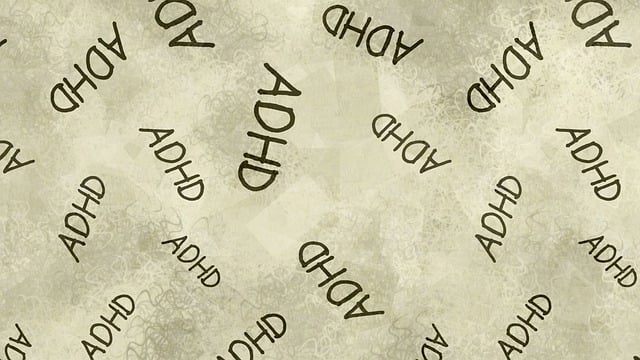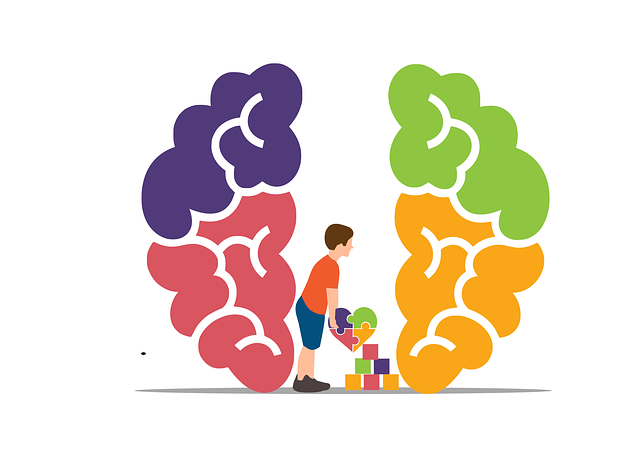Lakewood Veterans Therapy leads community outreach efforts in mental health support for underserved populations, particularly veterans. Their initiatives focus on education, trauma support, and anxiety relief to reduce stigma and barriers to care. By empowering individuals with skills for managing their mental well-being, these programs strengthen social connections and foster a sense of belonging. This approach, tailored to local needs and cultural contexts, has significantly improved mental health outcomes through strategic partnerships and creative problem-solving. Lakewood Veterans Therapy measures success using robust evaluation methods and KPIs to ensure sustainable impact over time.
Community outreach programs play a vital role in connecting organizations with local populations, fostering positive change. This article delves into the transformative power of such initiatives, highlighting the successful efforts of Lakewood Veterans Therapy. We explore key strategies, from understanding community needs to measuring long-term impact. Learn how tailored activities and strong partnerships drive effective outreach, offering valuable insights for organizations aiming to make a lasting difference through community engagement. Discover the art of empowering communities, one initiative at a time, with Lakewood Veterans Therapy as a guiding beacon.
- Understanding Community Outreach: Its Significance and Impact on Local Populations
- The Role of Lakewood Veterans Therapy in Initiating and Leading Effective Programs
- Developing Tailored Programs: Identifying Needs and Crafting Engaging Activities
- Strategies for Successful Implementation: Building Partnerships and Overcoming Challenges
- Measuring Success and Long-Term Sustainability: Evaluating Outreach Program Outcomes
Understanding Community Outreach: Its Significance and Impact on Local Populations

Community outreach programs play a pivotal role in connecting healthcare services to underserved populations, such as veterans in Lakewood and surrounding areas. Understanding the unique challenges faced by local communities is essential to designing effective Mental Health Education Programs. These initiatives aim to foster open dialogue about mental well-being, breaking down stigma and barriers that often prevent individuals from seeking support. By offering accessible Trauma Support Services and strategies for Anxiety Relief, outreach programs can empower community members to take charge of their mental health.
The impact of these programs extends beyond individual lives; they build resilient communities. When residents feel heard, supported, and equipped with knowledge about mental health, it strengthens social connections and fosters a sense of belonging. This, in turn, contributes to improved overall well-being, creating a positive cycle that benefits the entire population, including veterans who have experienced unique stressors and transitions upon their return home.
The Role of Lakewood Veterans Therapy in Initiating and Leading Effective Programs

Lakewood Veterans Therapy plays a pivotal role in initiating and leading effective community outreach programs aimed at supporting mental health and well-being. With a deep understanding of the unique challenges faced by veterans, they tailor their initiatives to address issues such as stress management, anxiety relief, and self-care practices. These programs serve as a crucial bridge between military life and civilian support systems, fostering resilience and healing among participants.
Through partnerships with local organizations and community leaders, Lakewood Veterans Therapy ensures that their outreach efforts are inclusive, accessible, and impactful. Their approach emphasizes the importance of early intervention and ongoing support, empowering individuals to navigate mental health struggles effectively. By focusing on evidence-based practices and leveraging a trauma-informed lens, these initiatives have been instrumental in enhancing the overall resilience and quality of life for numerous individuals within the community.
Developing Tailored Programs: Identifying Needs and Crafting Engaging Activities

Effective community outreach programs, like those offered by Lakewood Veterans Therapy, begin with a deep understanding of the specific needs within the target community. By identifying local concerns and cultural nuances, organizations can develop tailored initiatives that resonate deeply with participants. This personalized approach ensures that outreach efforts are not only relevant but also engaging, fostering higher levels of participation and impact.
For instance, implementing programs focused on self-care routine development for better mental health can be incredibly beneficial. Through workshops and activities, organizations can teach mindfulness meditation techniques, emphasizing their role in stress reduction and emotional well-being. Equally important is incorporating mental health education programs design that address common misconceptions and promote open dialogue, ultimately encouraging individuals to prioritize their psychological health alongside their physical well-being.
Strategies for Successful Implementation: Building Partnerships and Overcoming Challenges

Implementing community outreach programs, like those offered by Lakewood Veterans Therapy, requires strategic partnerships and innovative problem-solving to achieve success. Collaboration between mental health organizations, local businesses, schools, and faith groups can amplify the impact of initiatives aimed at improving emotional well-being promotion techniques. For instance, partnering with community centers allows for tailored workshops on empathy building strategies, catering to diverse populations’ unique needs.
Challenges, such as limited resources or resistance to change, can be overcome by adopting adaptable approaches. Organizations should emphasize the benefits of these programs, including enhanced emotional intelligence and improved social connections. By fostering open dialogue and offering flexible models, they can navigate labyrinthine obstacles and create sustainable change. This collaborative, inclusive approach ensures that outreach efforts resonate with the community, leading to lasting positive outcomes for all involved.
Measuring Success and Long-Term Sustainability: Evaluating Outreach Program Outcomes

Measuring success and ensuring long-term sustainability are vital components of any community outreach program. At Lakewood Veterans Therapy, we understand that evaluating outcomes is essential to gauge the impact and effectiveness of our initiatives. By implementing robust evaluation strategies, we can assess whether our programs, such as Mental Health Education Programs Design, foster inner strength development and equip participants with practical conflict resolution techniques.
This involves collecting qualitative and quantitative data through surveys, interviews, and observation. Tracking key performance indicators (KPIs), like increased attendance at follow-up sessions or positive feedback from participants, helps us identify what’s working well and areas for improvement. Through these assessments, we can adapt our strategies to better serve the community, ensuring that our outreach programs remain relevant and impactful over time.
Community outreach programs, as demonstrated by the successful initiatives of Lakewood Veterans Therapy, significantly impact local populations. By understanding community needs, tailoring engaging activities, building strategic partnerships, and measuring program outcomes, organizations can create sustainable change. Implementing these strategies not only enhances the well-being of communities but also serves as a testament to the power of collaboration and inclusivity. Moving forward, continued focus on effective outreach will be crucial in fostering strong, connected neighborhoods.














